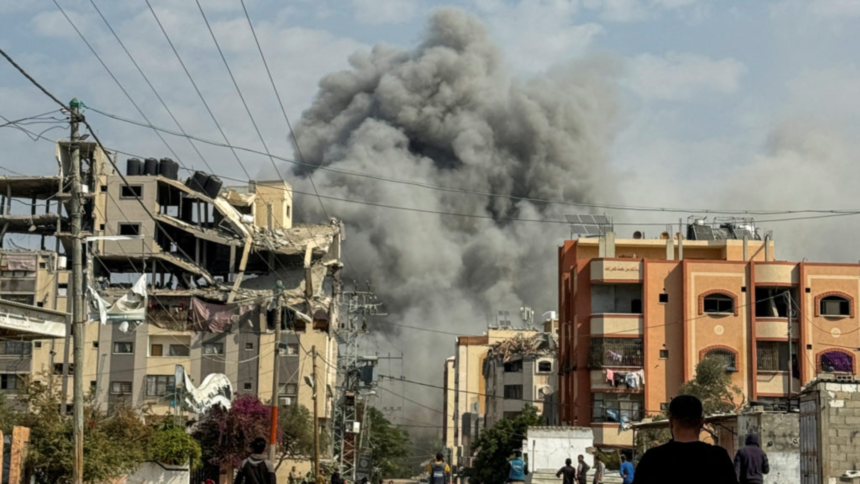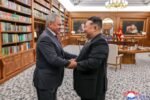The United States on Wednesday (June 4) vetoed a draft United Nations (UN) Security Council resolution that called for an “immediate, unconditional and permanent ceasefire” in Gaza and unhindered humanitarian aid access, even as a severe humanitarian crisis grips the enclave.
The veto isolated Washington as the other 14 council members voted in favor of the resolution, highlighting international concern over the looming famine and dire humanitarian situation in the enclave of over two million people. Aid has only minimally trickled into Gaza since Israel lifted an 11-week blockade last month.
Acting US Ambassador to the UN Dorothy Shea defended the veto, stating that the US would not support any measure that “fails to condemn Hamas and does not call for Hamas to disarm and leave Gaza.” She argued the resolution would also undermine ongoing US-led efforts to broker a lasting ceasefire.
The Security Council vote occurred as Israel continues its offensive in Gaza, which intensified after a two-month truce ended in March. Gaza health authorities reported 45 fatalities from Israeli strikes on Wednesday, while Israel confirmed one soldier’s death in fighting. Britain’s UN Ambassador Barbara Woodward criticized Israel’s expanded military operations and aid restrictions as “unjustifiable, disproportionate and counterproductive.”
Israel has consistently rejected calls for an unconditional ceasefire, insisting Hamas “cannot stay in Gaza.” Israel’s UN Ambassador Danny Danon told council members who voted for the draft that they “chose appeasement and submission” and a “road that does not lead to peace, only to more terror.” Hamas, for its part, condemned the US veto, describing it as “showing the US administration’s blind bias” towards Israel. The draft resolution had also demanded the immediate and unconditional release of all hostages held by Hamas.
The conflict in Gaza began in 2023 after Hamas militants killed 1,200 people in Israel in an Oct 7 attack and took approximately 250 hostages. Israel’s military response has resulted in over 54,000 Palestinian deaths, according to Gaza health authorities, who report that civilians bear the brunt of attacks and thousands more bodies remain under rubble.
Amid global pressure, Israel permitted limited UN-led aid deliveries to resume on May 19. However, a controversial new Gaza Humanitarian Foundation (GHF) aid distribution system, backed by the US and Israel, was launched a week later. Israel and the US advocate for aid through the GHF, which utilizes private US security and logistics firms for distribution at “secure” sites, citing Hamas aid theft allegations. The UN and international aid groups have refused to cooperate with the GHF, deeming it non-neutral and criticizing its “militarization” of aid and potential for forced displacement.
Despite US and Israeli criticism of the UN-led operations, a separate US ceasefire plan does propose UN and Red Crescent aid delivery. UN aid chief Tom Fletcher reiterated appeals for full aid access, urging: “Open the crossings — all of them. Let in lifesaving aid at scale, from all directions. Lift the restrictions on what and how much aid we can bring in. Ensure our convoys aren’t held up by delays and denials.” Slovenia’s UN Ambassador Samuel Zbogar passionately appealed, “Enough of suffering of civilians. Enough of food being used as a weapon. Enough is enough is enough.“
Diplomats anticipate a similar humanitarian-focused draft resolution will now be put to a vote in the 193-member UN General Assembly, where no country holds veto power, and it is expected to pass. However, Israel’s Ambassador Danon warned, “Don’t waste more of your time, because no resolution, no vote, no moral failure, will stand in our way.“







